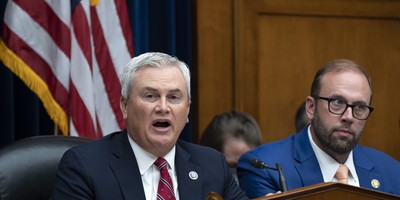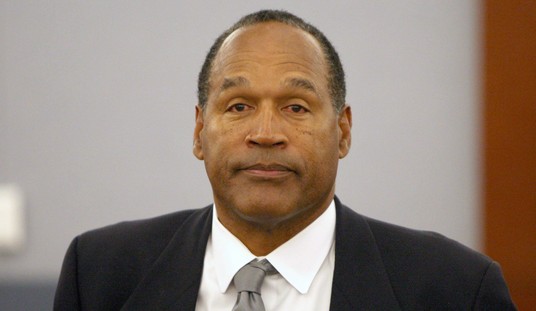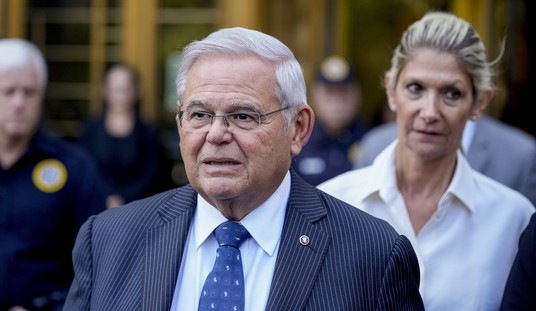"McCain offers tax policies he once opposed" (headline, first page of The Washington Post, April 25, 2008)
Ah, remember the good old days of opinion columns appearing on the opinion page opposite a newspaper's editorial positions? Notwithstanding the Post's - or any other newspaper's - very legitimate right to oppose John McCain on tax cuts, the aforementioned front-page headline properly belongs on the op-ed page and seems to me a story line that deserves a strong response.
For Jonathan Weisman of the Post to admonish McCain for supporting the extension of the 15 percent tax rate on capital gains and dividends, irrespective of McCain's opposition to the cut in tax rates, circa 2003, is hardly a breaking news story. It makes me wonder just what is so monumental or historical about a political leader/presidential candidate changing his mind as the facts change, as John Maynard Keynes once observed.
I remember Ronald Reagan, both as governor of California and as candidate for president in 1980, saying, "Politics is about the future, not the past." How true, as Reagan, Kennedy, Truman and other great presidents of the 20th century explained when they adopted new positions so as to meet changing conditions.
McCain understands that to raise tax rates on capital formation and entrepreneurial investments at this time of recessionary expectations and a weakening currency would be inexplicable, inexcusable and completely counterproductive.
McCain's support for the lower marginal tax rates on capital gains and dividends is on the right side of history, as well as the right side of the electorate - no pun intended.
Irrespective of where McCain and former Rhode Island Sen. Lincoln Chafee were in the 2003 debate (and vote), McCain is unambiguously clear now that raising these tax rates in a declining economy would exacerbate the incipient states of stagflation we are facing today.
Recommended
McCain understands intuitively, as well as intellectually, that capital gains taxes are voluntary taxes, i.e., they are never paid unless and until someone sells an asset. Further, taxing them as ordinary income, or close to it, as most in the Democratic Party plan to do, would distort decision-making, increase the use of tax shelters and demonstrably lower the amount of tax revenues coming into government at every level.
It is an absolute, empirically proven fact of tax policy that nearly one-half of all capital gains redound to the benefit of folks earning less than $50,000 a year.
The "soak the rich" rhetoric of the left finds both editorial pages and most op-ed columns, e.g. Paul Krugman of The New York Times, literally in denial of empirical evidence over the last half century, from Kennedy to Reagan and from Clinton to Bush 43, that every time tax rates on capital gains were reduced, the economy, tax receipts and the supply of labor have been strengthened.
A 15 percent tax rate on capital gains and dividends increased federal revenues overall and led to higher revenues from the capital gains tax, despite forecasts of revenue declines. In the four years since the tax cuts took effect, total federal revenues have increased by $740 billion (2003-07). Capital gains tax revenues increased from $49 billion in 2002, the year before the tax cut, to a Congressional Budget Office estimate of $110 billion in 2006. Not too shabby!
My Democratic friends, the Obama campaign in particular, love to quote John F. Kennedy and indeed seek to adopt the Kennedy mantle of a new Camelot. However, Kennedy wannabes go silent when confronted with the Kennedy (John, not Teddy) quotes from 1962 and 1963, when JFK called for cutting income tax rates and capital gains taxes by 30 percent.
President Kennedy, in 1962, said, "In short, it is a paradoxical truth that ... the soundest way to raise revenues in the long run is to cut the rates now." He went on to say, "The purpose of cutting taxes now is not to incur a budge deficit but to achieve the more prosperous, expanding economy which can bring a budget surplus."
In 1963, Kennedy's annual message to Congress included these words of wisdom: "In today's economy, fiscal prudence and responsibility call for tax reduction, even if it temporarily enlarges the federal deficit ... why reducing taxes is the best way open to us to increase revenues."
In this debate over a 21st century growth agenda, McCain is the closest to Kennedy's policies, while the Democrats have gone AWOL in seeking higher tax rates, higher tariffs and higher hurdles of government regulations, all of which would further weaken the U.S. dollar.
McCain's career-long credentials on spending restraint and his equally stubborn opposition to pork-barrel spending, including outrageous ethanol subsidies, are well-known. His fiscal conservatism and pro-growth tax policies give him the credibility to go to all areas of our nation, as he did recently, and talk about his plans to help bring about an American resurgence of a stronger economy and more jobs, with greater access to capital and education so as to enlarge the promise of America and our declaration that equality of opportunity, not equality of reward, is our nation's true lodestar.
























Join the conversation as a VIP Member